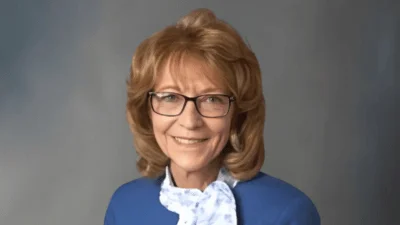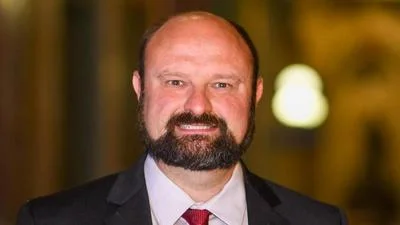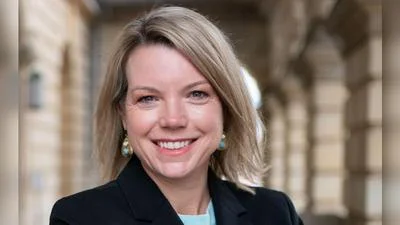Rep. Avery Bourne | RepBourne.com
Rep. Avery Bourne | RepBourne.com
State Rep. Avery Bourne (R-Litchfield) looks at the latest congressional maps drawn by Democratic lawmakers and comes to the conclusion that partisanship ruled the day.
“It seems they threw compactness out the window when they drew these hyper-partisan maps,” Bourne posted on Facebook. “Unfortunately our area gets divided up for no reasons other than partisan political advantage. The Democrat Machine may remember when Macoupin County was a Democratic county, but it’s deep-red now and slicing up our area does a disservice to every voter and resident.”
Back in late May, Bourne argued the spirit of former House Speaker Mike Madigan and his partisan way of overseeing the once-every-decade job of drawing the maps was alive and well.
“They’re following his playbook,” Bourne said in a video posted to YouTube. "They introduced it to the day almost 10 years later. This is worse than the Madigan playbook, but it is the Madigan playbook. Illinoisans, all of us, even the governor when he campaigned, called for an independent process.”
Bourne recently took to social media to assure voters there’s a better way.
“I’m here today to reinforce what we’ve heard over the last months, but particularly over the weekend from Illinois residents and community groups who are extremely concerned that their voices were not heard in the development of this resulting new legislative map proposal,” she said. “Late Friday, we saw a new map proposal released by Democrats that we still don’t know what data they used or what process they used to reach this result. They are doing the exact same thing Madigan did.”
Bourne is warning anyone willing to listen about what she fears it could come to mean for the already long-troubled state.
“A flawed process produces a flawed product, which is what we have in these new maps,” she said. “These maps were allegedly created using the American Community Survey data; we’re not sure what else. If we aren’t counting all of Illinois residents, the map is inherently flawed and we are not adequately representing them in the legislature.”
Bourne has also been pushing to bring what she deems as real ethics reform to Springfield, arguing that Senate Bill 539 doesn’t nearly go as far as it needs to get the job done.
"This bill was sorely lacking in substance,” she recently tweeted. “With so many investigations ongoing, people have very low trust in state government. We need reform that’s serious, broader & a lot stronger. We have the opportunity and obligation to pass real ethics reform. Let’s get it done."
SB 539 prohibits government officials from engaging in certain kinds of compensated lobbying while also expanding what meets the criteria of being considered a lobbyist. The measure also expands public reporting of lobbyist activities and puts in place a provision designed to slow the “revolving door” of lawmakers resigning only to soon return to Springfield as lobbyists looking to do business with former colleagues.
Soon after the measure was advanced, Bourne lobbied Gov. J.B. Pritzker to issue an amendatory veto to the legislation that eventually passed on the final day of the session. As part of her argument, she cited now-former Legislative Inspector General (LIG) Carol Pope pointing to provisions in SB 539 that limit the jurisdiction of the LIG.






 Alerts Sign-up
Alerts Sign-up